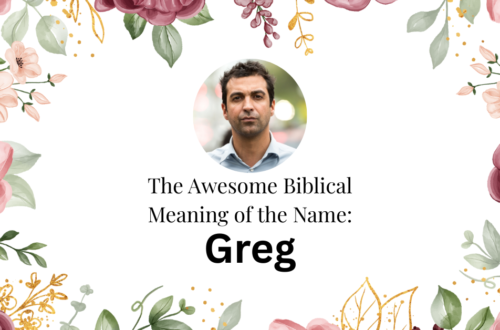While the name Hunter doesn’t appear in the Bible, its meaning and historical associations connect to biblical themes. Like many occupational names, Hunter reflects an essential role in ancient societies. This post explores the name’s meaning, historical context, and its connection to biblical principles.
Origin and Meaning of Hunter
Hunter comes from the Old English word hunta, meaning “one who hunts.” In ancient times, hunters played a key role in providing food. The name represents skill, resourcefulness, and the ability to provide—traits essential in any era.
Although Hunter has secular roots, its meaning aligns with biblical themes of stewardship, provision, and vigilance.
Biblical Themes Connected to Hunter
The Bible doesn’t mention a person named Hunter but does reference hunting and its skills. These concepts reflect spiritual lessons relevant to the Christian faith.
1. Provision and Stewardship
Hunters in ancient times provided for their families and communities. In the Bible, God is the ultimate provider and calls His people to manage resources wisely.
Psalm 104:21 says:
“The young lions roar for their prey, seeking their food from God.”
Just as hunters sustain their families, believers must be good stewards of God’s gifts. Those named Hunter can embrace this role of provision and care.
2. Spiritual Vigilance
Hunting requires patience, awareness, and precision—qualities also vital in faith. Believers must stay alert to spiritual dangers, just as hunters remain watchful of their prey.
1 Peter 5:8 warns:
“Be sober-minded; be watchful. Your adversary the devil prowls around like a roaring lion, seeking someone to devour.”
The name Hunter serves as a reminder to stay spiritually vigilant. Just as a hunter anticipates movement, Christians must recognize and resist temptation.
3. Seeking with Purpose
Hunters pursue their target with focus and determination. The Bible encourages a similar mindset in seeking God.
Matthew 7:7 says:
“Ask, and it will be given to you; seek, and you will find; knock, and it will be opened to you.”
Like a hunter tracking prey, Christians must actively seek God and His truth. The name Hunter reflects this pursuit of faith and purpose.
Spiritual Lessons from Hunter
1. Diligence and Perseverance
Hunting demands patience and persistence. Likewise, faith requires endurance. Hebrews 12:1 encourages believers to run their race with perseverance.
For those named Hunter, the name serves as a reminder to stay committed, both in life and faith. Just as hunters don’t quit after one failed attempt, Christians must persist in their walk with God.
2. Stewardship of Creation
Hunting is about survival and responsible management of resources. The Bible calls believers to care for creation. Genesis 1:28 states:
“Be fruitful and multiply and fill the earth and subdue it, and have dominion over the fish of the sea and over the birds of the heavens and over every living thing that moves on the earth.”
The name Hunter reflects this responsibility. It reminds us to respect and manage God’s blessings wisely.
3. The Call to Seek God Diligently
Hunter symbolizes pursuit. In faith, believers must seek God with the same focus. Jeremiah 29:13 promises:
“You will seek me and find me when you seek me with all your heart.”
Those named Hunter can find encouragement in this call to seek God wholeheartedly.
Conclusion
Hunter may not have biblical origins, but its meaning aligns with key spiritual principles. It reflects provision, vigilance, and seeking with purpose.
The name embodies diligence, resourcefulness, and responsibility—traits that mirror biblical values. Those named Hunter are reminded to provide, remain vigilant, and pursue God with dedication. By living with purpose and faith, they can embody the virtues of both a hunter and a believer.
What are your thoughts on the biblical themes connected to the name Hunter? Do you see any other spiritual connections? Share your insights in the comments, and let’s continue the conversation!






